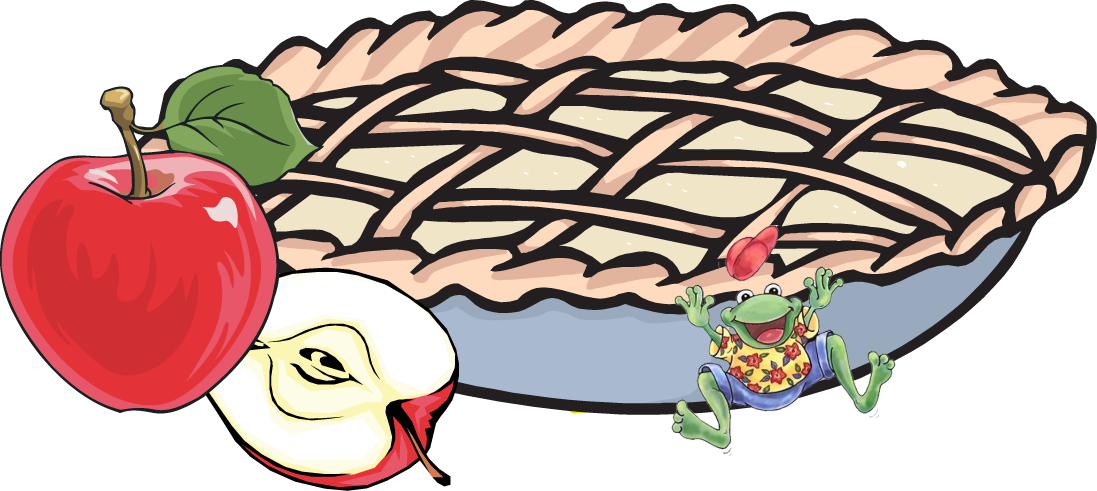The love affair with apple pie began in the early 1900s when the United States was at war. Not with Europe but with pie. One side, the traditionalists, saw apple pie as a necessity in every household, ranking right up there along with a cookstove and bed. This is according to the Chicago Daily Tribune of 1899. On the opposing side was a group of "food reformers" who wanted the country to break with this unhealthy and corrupting behavior. “Pie really is an American evil,” Kate Masterson wrote in the New York Times in 1902. It is an “unmoral food,” she warned, offering advice for spotting pie eaters: They have “sallow complexions” and “lusterless or unnaturally bright eyes” and, of course, they “are all dyspeptic.” “No great man,” she wrote, “was ever fond of pie.” What? Tell me it isn't so!
Pie eaters could, after all, trace their love of pie back to founding fathers of the country. "A particular pumpkin pie recipe credited to the Adams family was said by the Kansas City Star to have “raised a well-fed race of jurists, scholars, orators and Presidents”—and still further back to the Massachusetts Bay Colony." The pie tradition had come with the early settlers from Old England who transformed savory pies like steak and kidney to sweet treats made from fruit. Not only did the filling change, but so did the crust. "They were lighter and flakier because lard from pigs was more abundant in the Colonies than tallow from cows. (Sugar and spices were imported to the Colonies from Britain, which controlled most trade.) In 1892, Rudyard Kipling described the Northeast as “the great American pie belt,” a title that traditionalists claimed proudly. As the population moved west, the pie recipes did, too."
By the turn of the 20th-century, Americans were eating more apple pie than just about any other kind. Apples were plentiful and, more importantly, could be stored and kept fresh throughout the long winters. But the phrase, "As American as apple pie" wasn't coined until 1924. It came about in an advertisement in the Gettysburg, Pennsylvania Times for men's suits "that bucked the English fashion trends" of the day. A New York Times Op-Ed writer in 1895 once wrote, "Every American is born with an appetite for pie." He continued, "As for immigrants, his Americanism, in fact, may be tested in his taste for pie."
So what happened to the food reformers? They still believed that pie was "rustic" and worthy of America's newfound place on the international stage. "Advocates such as Harvey Wiley—now best known for his support of the Pure Food and Drug Act of 1906—called for a simpler and lighter diet, focused on Northern European cuisines. Pie eaters (code for immigrants and the lower classes, in the language of the food reformers) were a drag on society. Elizabeth Fulton, a home economist at Kansas State Normal School, believed pie eating, like alcoholism, was a cause of divorce. She implored homemakers to 'return to fresh fruit.' The reformers might have won the battle, too, if not for the outbreak of World War I." Now, pie-eating was seen as patriotic. “As soon as an American boy goes to any foreign country he at once begins to languish for American pie,” a Boston Daily Globe editorial professed in 1918. The craving, the Globe wrote, was a hunger for democracy itself: “Patrick Henry might as well have said ‘Give me pie or give me death’ because what is liberty without pie?” Apple pie maintained its significance into the Cold War.
Apple pie is still considered to be a "taste of home" whether you're in another country or just in the next state. It is nostalgia on a plate. Apple pie might be called the original "comfort food." In 1974 General Motors car company had the jingle, “Baseball, hot dogs, apple pie and Chevrolet, they go together in the good ol’ USA.” The company revived it in 2012 as the nation emerged from the financial crisis and the lingering menace of 9/11.
Even with the fast food and health food crazes, and wouldn't the food reformers be pitching a fit, Americans still manage to love their apple pie. About 186 million pies of various varieties are purchased every year at the nation's grocery stores alone. And you can walk into a diner anywhere in the USA and find apple pie on the menu. Because nothing typifies America as much, or as well as the humble apple pie.
Tomorrow I will have for you the September calendar of special days. The kiddos may be heading back to class and your summer vacation may have come and gone, but that doesn't mean there aren't still plenty of fun things to celebrate! Until tomorrow, I wish you
a big PIECE (of apple pie) as well as PEACE.

 RSS Feed
RSS Feed